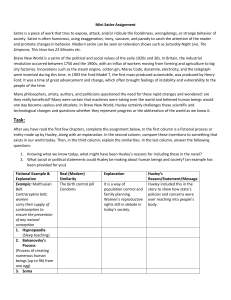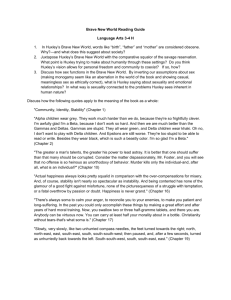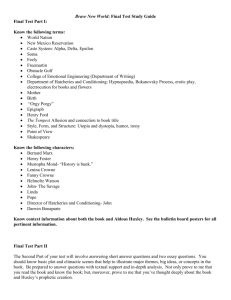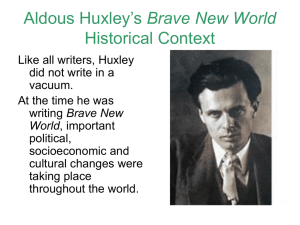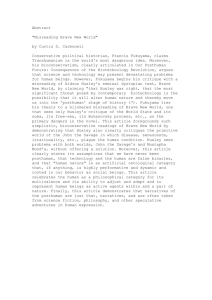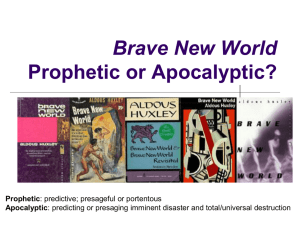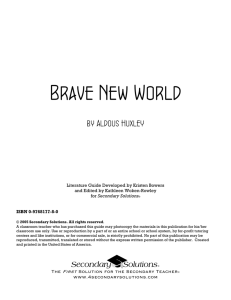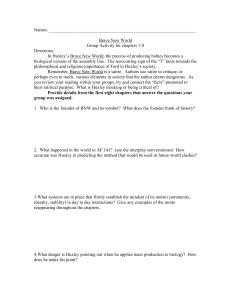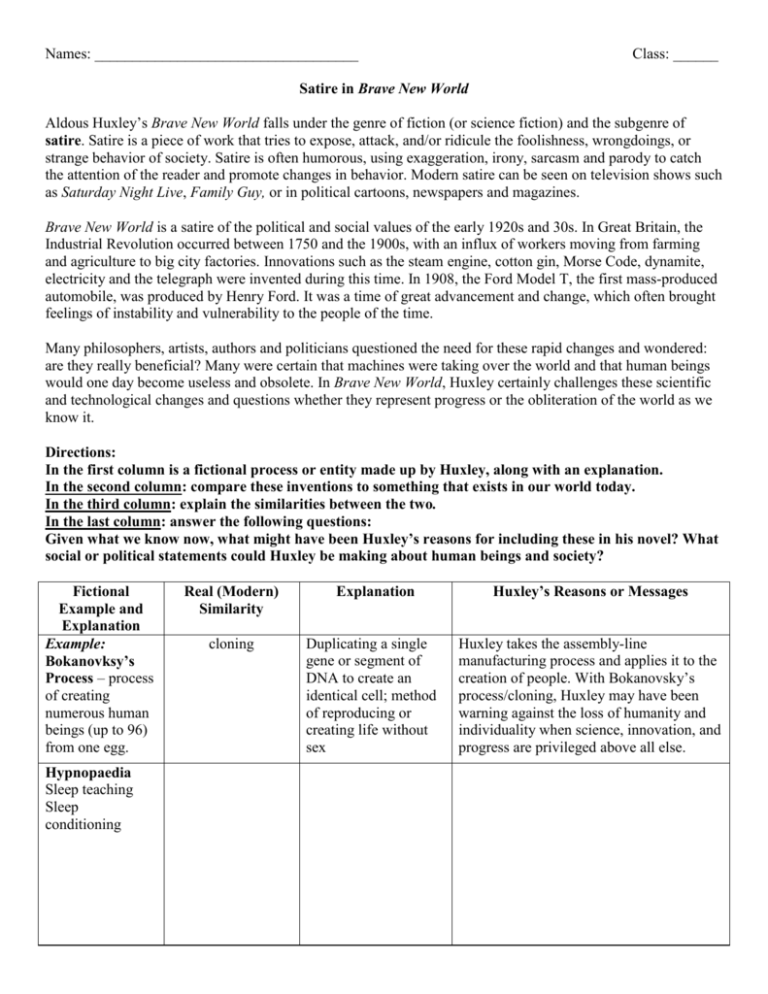
Names: ___________________________________
Class: ______
Satire in Brave New World
Aldous Huxley’s Brave New World falls under the genre of fiction (or science fiction) and the subgenre of
satire. Satire is a piece of work that tries to expose, attack, and/or ridicule the foolishness, wrongdoings, or
strange behavior of society. Satire is often humorous, using exaggeration, irony, sarcasm and parody to catch
the attention of the reader and promote changes in behavior. Modern satire can be seen on television shows such
as Saturday Night Live, Family Guy, or in political cartoons, newspapers and magazines.
Brave New World is a satire of the political and social values of the early 1920s and 30s. In Great Britain, the
Industrial Revolution occurred between 1750 and the 1900s, with an influx of workers moving from farming
and agriculture to big city factories. Innovations such as the steam engine, cotton gin, Morse Code, dynamite,
electricity and the telegraph were invented during this time. In 1908, the Ford Model T, the first mass-produced
automobile, was produced by Henry Ford. It was a time of great advancement and change, which often brought
feelings of instability and vulnerability to the people of the time.
Many philosophers, artists, authors and politicians questioned the need for these rapid changes and wondered:
are they really beneficial? Many were certain that machines were taking over the world and that human beings
would one day become useless and obsolete. In Brave New World, Huxley certainly challenges these scientific
and technological changes and questions whether they represent progress or the obliteration of the world as we
know it.
Directions:
In the first column is a fictional process or entity made up by Huxley, along with an explanation.
In the second column: compare these inventions to something that exists in our world today.
In the third column: explain the similarities between the two.
In the last column: answer the following questions:
Given what we know now, what might have been Huxley’s reasons for including these in his novel? What
social or political statements could Huxley be making about human beings and society?
Fictional
Example and
Explanation
Example:
Bokanovksy’s
Process – process
of creating
numerous human
beings (up to 96)
from one egg.
Hypnopaedia
Sleep teaching
Sleep
conditioning
Real (Modern)
Similarity
Explanation
Huxley’s Reasons or Messages
cloning
Duplicating a single
gene or segment of
DNA to create an
identical cell; method
of reproducing or
creating life without
sex
Huxley takes the assembly-line
manufacturing process and applies it to the
creation of people. With Bokanovsky’s
process/cloning, Huxley may have been
warning against the loss of humanity and
individuality when science, innovation, and
progress are privileged above all else.
Fictional
Example and
Explanation
Malthusian belt
Contraceptive belt
Soma
Drug with no side
effects or social
stigma
Solidarity
Service
weekly devotional
meetings in
assigned groups
where members
take soma, chant,
and have a sex
orgy in order to
create the
“Greater Being”
The Savage
Reservation
Large, fenced-in
area where
primitive sect of
people, who were
not created or
conditioned by
the world state,
are allowed to live
Real (Modern)
Similarity
Explanation
Huxley’s Reasons or Messages

